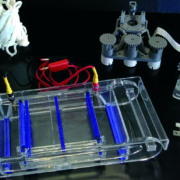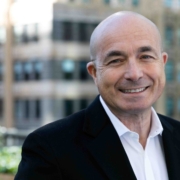While open innovation may be seen as a way of cutting costs by shutting down in-house R&D in favour of promoting spin-offs, start-ups, and biotech SMEs, the open science movement aims to establish a completely new model for how to spur innovation. Eliminating intellectual property-related restrictions, open biology promises rapid and local production of biomaterials, diagnostics, or genome-edited crops in countries with no established IP system.
ADVERTISEMENT
Spanish 3P Biopharmaceuticals has shown tremendous growth, at least 10 per cent above market growth rate in the past four years. European Biotechnology spoke with Dámaso Molero, CEO of the Spanish CDMO, about growth perspectives and future strategies.
A newly forming industry association warns the European Commission not to block patients’ access to the emerging EU market for medicinal cannabis. At the BIO-Europe in Hamburg, European Biotechnology spoke with one of the initiators, Peter Homberg.
The European biotech sector is flourishing – rising stock prices, big partnering deals, and some major M&A. Can someone please tell European fund managers that investing in biotech is simply mind over matter?!
Medical cannabis has become one of the most important economic topics in recent years! But, what makes this topic so relevant, and why is it so essential to found a European association? The legalisation of recreational and medicinal cannabis in different states has led to impressive economic progress in recent years. Through worldwide patient campaigns and global marketing strategies, the topic became a permanent information focus for social networks and politics at the end of 2018.
In 2019, a new AMR accelerator kicked off under the aegis of the Innovative Medicines Initiative as a follow-up and evolutive next step to the former New Drugs for Bad Bugs programme. European Biotechnology spoke with Rob Stavenger, its coordinator at GlaxoSmithKline, about the goals of the €295m initiative, its cooperation with SMEs, and the relevance of push and pull incentives in the field.
Modern biotechnology creates next generation therapies and cures, delivers value to patients and the economy, cuts greenhouse gas emissions, reduces reliance on fossil fuels, and generates higher crop yields with fewer resources. These critical activities and advances thrive only in an environment where biotechnology is supported by policies that maintain incentives for future innovation including the form of intellectual property rights while, at the same time, providing fair and equitable consumer access to innovative products. On both fronts, biotechnology enterprises face unprecedented challenges that, if not addressed, will slow the innovation engine. The consequent negative effects will be felt by all nations. Today, the biotechnology industry faces enormous challenges caused by deep public concern about pricing and access to medicines. The consequent political and public pressure is leading to rapid fire and poorly considered legislation. This, in turn, will likely result in an erosion of incentives to innovate, as it impacts return on investment and access to capital.
There was unparalleled surprise in New York when a powerful alliance of UN-backed asset owners announced it will drive it’s portfolio companies to carbon neutrality by 2050. This could mean a fundamental change in capital markets.
Every year, drug developers lose billions of euros because of late-stage clinical or postmarking safety problems with drugs. A recently kicked-off IMI consortium now wants to qualify a set of safety biomarkers that allow for the prediction of drug-induced injury of kidney, liver, vasculature, CNS, and pancreas. European Biotechnology spoke with Dr Michael Merz, the coordinator of the TransBioLine Project, and consortium member Prof Dr Stefan Wnendt about the plans and impact of the project.
By Ute Kilger, Patent Attorney, European Patent and Trade Mark Attorney, Boehmert & Boehmert Anwaltspartnerschaft mbB
The US Supreme Court has mutilated US Patent law with the law of nature doctrine created from the decisions Mayo v. Prometheus and AMP v. Myriad Genetics. Since then, the US-PTO has implemented guidelines, and the highest patent court in the US, the CAFC, has issued numerous decisions applying these Supreme Court decisions, making it hard or impossible to obtain useful patent protection and/or enforce it, in particular for inventions directed to diagnostic methods, or directed to naturally occurring substances.








